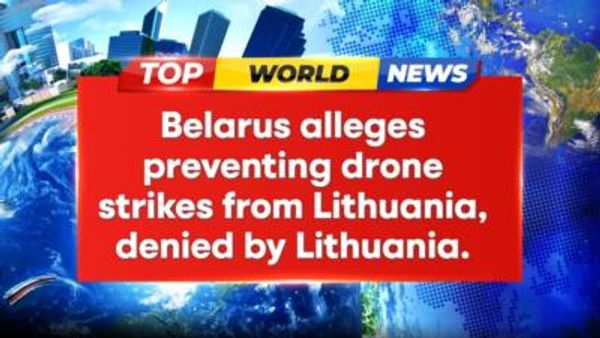It's a situation no one wants to be in — least of all a first-time mum with a six-month-old baby cradled in their arms.
Stuck in a physically and emotionally violent relationship, with her house lost to her partner's gambling addiction, Fiona* was forced to seek refuge for the night in the only safe place she could find.
"I remember waking up in the car," she says. "I had half a tin of formula and a handful or nappies with me, so it wasn't about getting a house or a job — it was about where am I going to get more nappies today, and which cafe can I get water from to make up that formula to give my son his first bottle of the day."
That baby is now in his late 20s and she's raising her second son alone. But the mother from south-east Queensland describes those early years spent in "survival mode" like they were yesterday.
"Your brain is just so overwhelmed by crisis; you can't possibly think of having a home — that's like a fairytale," Fiona, who was in her 20s at the time of the abuse, says. "My whole life was ‘what do I need to do right now for me and my son?'."
For many single mothers, the impossible choice between continuing to live with violence or face financial insecurity will seem all to familiar.
And now for the first time, we know exactly how common it really is. A ground-breaking report, authored by leading feminist researcher Anne Summers, has revealed 60 per cent of single mothers have experienced domestic violence at the hands of a previous partner, compared to 17 per cent of women more broadly.
The report also sets out the immense financial challenges women face when leaving abusive relationships — and the lack of adequate government support for single mothers when they do escape, whether temporarily or permanently.
"When a woman leaves a violent relationship, we applaud that, but we never think of what happens next," Summers says, "and that, in some ways, her life might be worse."
The true scope of the crisis
The report, produced by the Paul Ramsay Foundation, focuses on previously unpublished data from the Australian Bureau of Statistics' Personal Safety Survey — the main data collection mechanism for violence in Australia — that illuminates the link between domestic violence and single motherhood.
"One of the problems in the past is people have tended to write a little about a lot of things, but not look at anything in great detail," says Summers, who will discuss her findings on a special episode of Q+A tonight. "And what this report has tried to do, is gather detail that we've never seen before."
This required the creation of a specialised data set to compare the experiences of single mothers, defined as a woman without a partner living with children under 18, to the wider population. At the time of the survey in 2016, 311,000 respondents fit these criteria — and of this group, 185,700 reported having experienced physical or sexual violence by a partner since the age of 15
Of these women, 75 per cent said their former partner's assaults, threats, or emotionally abusive behaviour were the main reason the relationship ended.
"That is just unbelievable," Summers says. "Violence is causing women to become single mothers, very large numbers."
Journalist and author Jess Hill, who wrote a book about domestic violence in Australia, says the statistics revealed in the report are "mind-blowing".
Despite regularly hearing from survivors who are single mothers through her work, Hill says it has been difficult until now to get a sense of how disproportionately the group is affected by violence. "It was just so normal for almost every victim-survivor to be a single mother or to have children that are now grown, that I didn't ever think about what percentage of single mothers it would be," she says.
"And in that number, there will be people who have experienced violence and do not feel safe detailing those experiences to a stranger, so what that tells us is that, if anything, these numbers are still underdone."
Not everyone leaves
While the number of single mothers who have experienced violence is shocking, it's eclipsed by the number of women who remained in violent relationships at the time of the survey.
In 2016, 275,000 women reported suffering physical or sexual violence from a current partner. Of these respondents, 193,400 lived with their abusive partners at the time of the survey and almost 90,000 said they wanted to separate but were unable to.
A quarter of these women attributed being unable to leave to having no money or financial support. Other considerations included having nowhere else to go, fear of their partner, concerns for the safety of children or pets, and cultural and religious reasons.
"Women who experienced violence had to make a terrible choice: they either stay with the violence possibly continuing, or possibly getting worse, or they leave," Summers says. "And if they leave, they have a 50 per cent chance of living in poverty."
The decision to leave a violent partner is also often not final. Of the 168,000 single mothers who reported experiencing violence while living with their most recent abusive partner, more than half said they had temporarily separated on one or more occasions. Among a wide range of reasons given for going back, 37 per cent said they returned to a violent partner because they had no money or nowhere else to go.
Like many of the women surveyed, it took a few goes before Fiona's separation stuck. "I still wanted him to have access to his son, I still wanted them to have a relationship, I still loved him," she says. "I just wanted this violence and the money thing to stop."
After that night in her car, Fiona and her son spent two weeks sleeping in the basement of an acquaintance, before she was able to land a job and a rental property. What followed was three years of juggling restaurant work, child care and trying to save enough money for a new home.
"For many years it was hand to mouth," she says. "I cut off the phone, we lived on sweet chilli sauce and rice, I worked I don't know how many jobs, and I saved every penny."
The final separation came when her ex visited them at her new home in Queensland. When he found out she had saved enough money to buy a property, rather than give him money when he had asked for it, Fiona says "he went crazy".
"That beating was the worst. When I woke up, I couldn't walk for three days," she says. "I think it shocked him and that was the last time. Never again."
Surviving after violence
The choice, between violence and poverty, is not an abstract one.
Australian National University economist Bruce Chapman produced background research for the report, using data from the Household, Income and Labour Dynamics Survey (HILDA) — a yearly survey that tracks the lives of 17,000 Australians — to compare financial outcomes for women who leave non-violent relationships with those of who separate after experiencing domestic violence.
"What we found was quite striking, mind-blowing in a way," he says. Across the board, women who left relationships experienced around a 20 per cent decrease in household income per capita. For women who fled violence, however, this drop in income grew to up to 45 per cent. Looking only at single mothers who experienced domestic violence, the drop in household income was about 34 per cent after separation.
"The implications are fairly clear," Emeritus Professor Chapman says. "There is something quite unusual about the experience of domestic violence which impacts very strongly on the labour force participation and hours worked of women who have experienced it."
While all women who separated from their partners saw an increase in government assistance, Chapman says, it was "by no means enough to compensate for the major cuts … in wage and salary behaviour."
So what does this loss of income mean in practice? According to the report, of the 185,700 single mothers who had previously experienced violence, 60 per cent had struggled to pay for essentials in the 12 months before the survey.
This included 78,400 who couldn't pay their utility bills on time, 36,300 who could not pay their car registration or insurance on time, and 17,400 who went without meals to make ends meet.
"Let's face it, without money, you're stuffed, what can you do?" Summers says. "It's completely unacceptable in a rich society like Australia that women and children should live in abject poverty because they've run away from violence."
Terese Edwards, the chief executive of the National Council of Single Mothers and their Children, has spent years supporting single-parent families, many of who are dealing with poverty, violence and financial hardship.
"My heart has been broken numerous times when I have worked with families only to discover that they've decided to go back to the hands of their abuser because they thought it was a better outcome for their children than living rough or not being able to give them the necessary clothing or food," Edwards says.
"We also know families that have had an OK life, but just because their little one celebrated their eighth birthday, and they lose access to the Parenting Payment Single [a government support payment], they then start to spiral into a really dark place.
"Our safety net has had a gap in safety for such a long time."
The impact of policy
With around 50 per cent of single mother survivors of domestic violence relying on government support as their main source of income, as stated in the report, it's clear why a disruption to these payments could result in significant hardship for single-parent families.
Single mothers are eligible to receive the Parenting Payment Single of $892.20 a fortnight — but only until their youngest child turns eight, when they are moved onto the unemployment benefit.
The JobSeeker rate for single parents with dependent children currently sits at $691 a fortnight — about a $100 loss in income per week.
According to Summers, removing this policy is the first step towards improving the plight of single mothers. "This thing where their child turns eight and they suddenly stop being a single mother and become an unemployed person, it's just nonsense and it needs to stop," she says.
"We are forcing women into this invidious situation of having to choose between their safety and their financial security."
Jess Hill agrees that the current support system is "unworkable".
"We need to give children and their single parents a chance to recover [from violence] and instead we put them on a payment below the poverty line," she says, adding that allowing survivors and their children to live in insecure circumstances only allows domestic violence to perpetuate into the future.
"If in leaving violence, children are plunged into insecurity, then the likelihood that those children are going to feel like they need to exert control in order to feel safe or they need to be with someone who can take control in order to feel safe when they grow older increases exponentially."
Terese Edwards says many of these big policy decisions, including what payments single mothers should receive, have been made in the dark with no meaningful research into the conditions single parents are living in.
"Being informed has been an inconvenience," she says.
"That's why this report, for me, is groundbreaking — because we can no longer pretend we didn't know."
*Name have been changed.
Watch the special Q+A episode tonight on ABC TV and ABC iView at 8.30pm AEDT.







